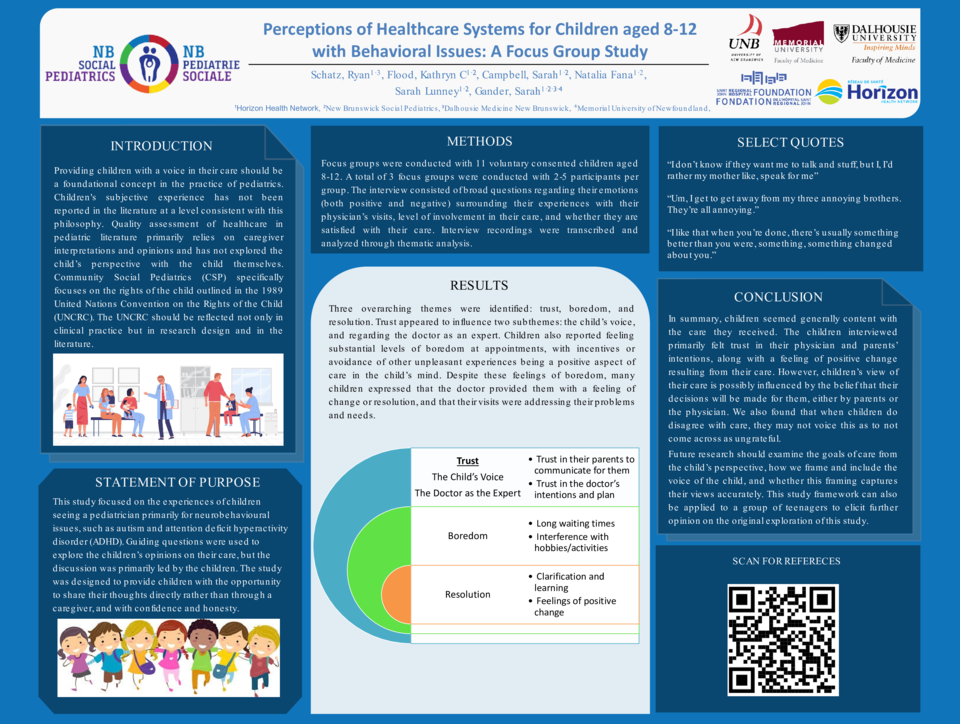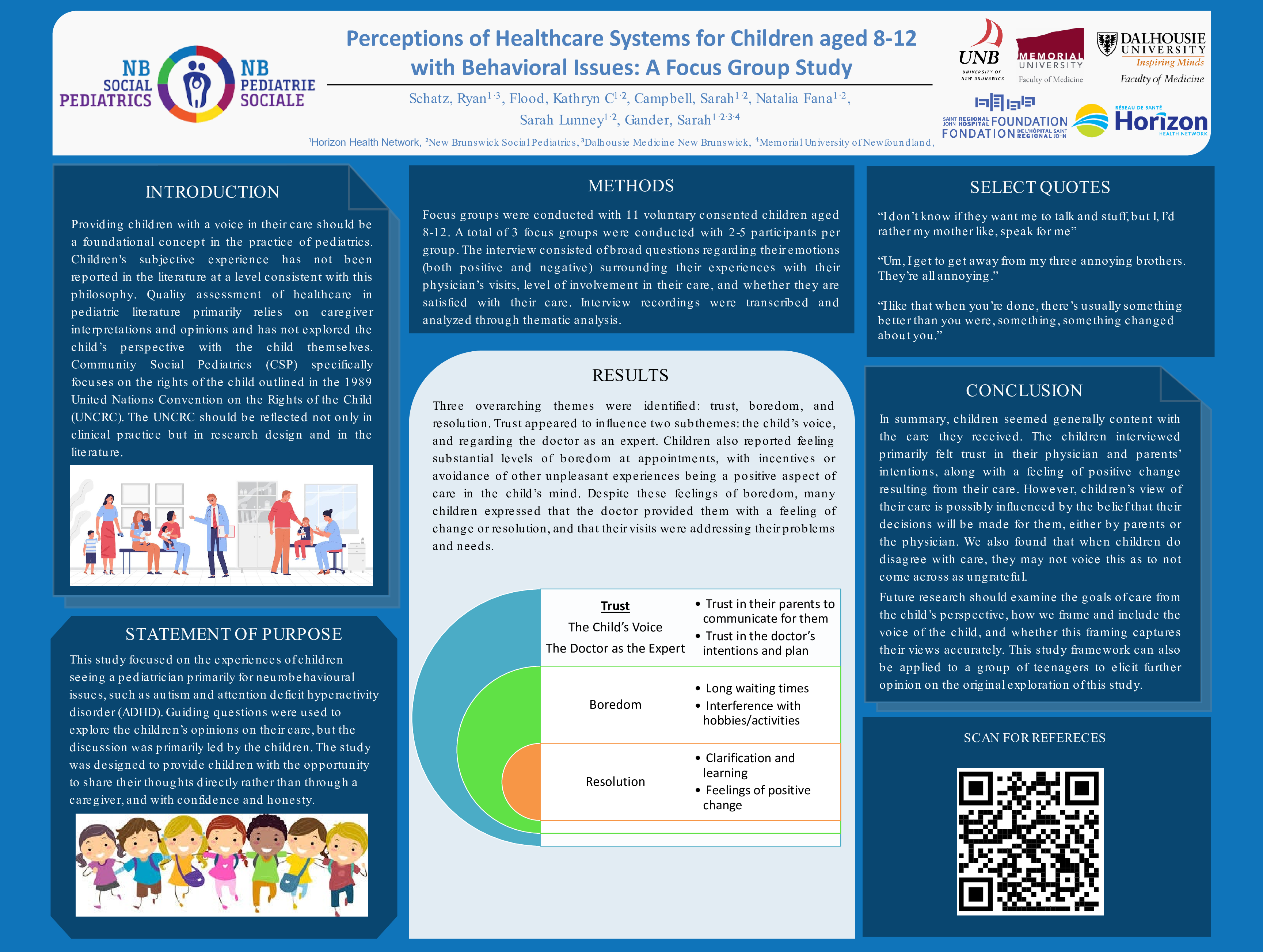Abstract
Introduction
Providing children with a voice in their care should be a foundational concept in the practice of pediatrics. Children's subjective experience has not been reported in the literature at a level consistent with this philosophy. Quality assessment of healthcare in pediatric literature primarily relies on caregiver interpretations and opinions and has not explored the child’s perspective with the child themselves. Community Social Pediatrics (CSP) specifically focuses on the rights of the child outlined in the 1989 United Nations Convention on the Rights of the Child (UNCRC). The UNCRC should be reflected not only in clinical practice but in research design and in the literature.
Purpose
This study focused on the experiences of children seeing a pediatrician primarily for neurobehavioural issues, such as autism and attention deficit hyperactivity disorder (ADHD). Guiding questions were used to explore the children’s opinions on their care, but the discussion was primarily led by the children. The study was designed to provide children with the opportunity to share their thoughts directly rather than through a caregiver, and with confidence and honesty.
Methods
Focus groups were conducted with 11 voluntary consented children aged 8-12. A total of 3 focus groups were conducted with 2-5 participants per group. The interview consisted of broad questions regarding their emotions (both positive and negative) surrounding their experiences with their physician’s visits, level of involvement in their care, and whether they are satisfied with their care. Interview recordings were transcribed and analyzed through thematic analysis.
Results
Three overarching themes were identified: trust, boredom, and resolution. Trust appeared to influence two subthemes: the child’s voice, and regarding the doctor as an expert. Children also reported feeling substantial levels of boredom at appointments, with incentives or avoidance of other unpleasant experiences being a positive aspect of care in the child’s mind. Despite these feelings of boredom, many children expressed that the doctor provided them with a feeling of change or resolution, and that their visits were addressing their problems and needs.
Conclusions
In summary, children seemed generally content with the care they received. The children interviewed primarily felt trust in their physician and parents’ intentions, along with a feeling of positive change resulting from their care. However, children’s view of their care is possibly influenced by the belief that their decisions will be made for them, either by parents or the physician. We also found that when children do disagree with care, they may not voice this as to not come across as ungrateful. Future research should examine the goals of care from the child’s perspective, how we frame and include the voice of the child, and whether this framing captures their views accurately. This study framework can also be applied to a group of teenagers to elicit further opinion on the original exploration of this study.





